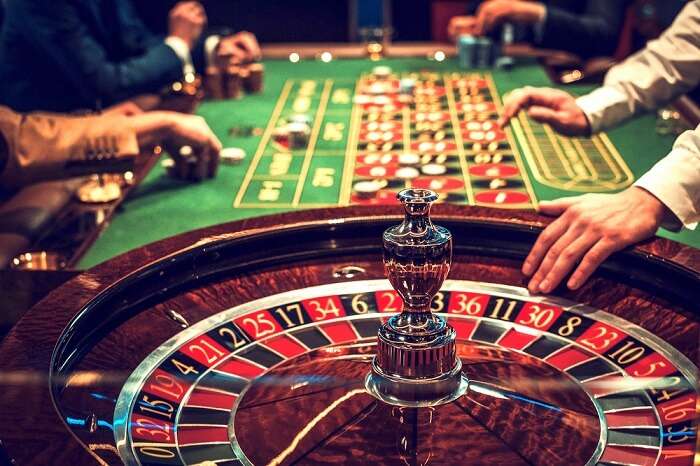Casino games have captivated players for ages, drawing them into a world of adventure, luck, and prosperity. From the blinking lights of video slots to the intense action of card tables, these experiences offer a unique mixture of entertainment and risk. However, underneath the facade of this sparkle and glamour lies a sophisticated connection of math that shapes every conclusion and decision made within the casino.
Understanding this link between gambling games and math not just boosts the gambling experience but may also help gamblers make knowledgeable decisions. Whether you are a recreational player or a dedicated enthusiast, recognizing the math concepts at play can provide important insights into likelihood, probabilities, and approaches, eventually affecting how one approaches these games of luck.
Mathematical Likelihood in Gambling
In the world of casino activities, mathematical likelihood plays a vital role in assessing results and guiding gambler choices. Each activity has a specific set of rules and a specific probability framework that influences its mechanics. For example, in activities like the roulette wheel, players must comprehend the chances of landing a specific number or shade. The likelihood of certain occurrences happening can be assessed, and this understanding can greatly influence wagering strategies.
Players also need to be aware of the casino advantage, which is the mathematical benefit that casinos hold over players in the long run. This edge differs across various activities. In 21, skilled players can use strategies to lower the casino edge to as low as one %, while in games like slots, the casino edge can be substantially larger. Understanding the house advantage allows gamblers to make educated choices about which activities to play and the amount to wager.
Additionally, likelihood is fundamental in the concept of danger versus gain in gambling. Each bet carries a specific danger level, and players must evaluate the possible payout against that risk. Activities like poker require players to not only compute the odds of their personal hand winning but also to evaluate the probabilities of their rivals’ showings. By applying mathematical principles to their gameplay, players can boost their chances of success and participate more strategically in the thrilling realm of casino games.
Anticipated Worth in Casino Games
When discussing casino games, one of the basic ideas rooted in mathematics is the anticipated worth. This numerical metric assists players understand the possible outcomes of their wagers over time. In simple terms, anticipated value (EV) calculates the average amount a player can expect to gain or suffer per bet if they were to play the activity many times. Each activity has its unique EV, affected by the probabilities and the casino advantage, which signifies the benefit that the casino holds.
For example, consider a game like the roulette game. The expected worth can be derived based on the particular bet placed. If a gambler bets on a single number, the return is 35 to 1, but the actual chances of winning that bet are 1 in 37 (in Euro the roulette game). This leads in a detrimental expected value, indicating that, on the whole, players will lose money over a period when playing this kind of wager. Grasping this idea allows players to make more educated decisions about which games and wagers may be more favorable.
Moreover, the investigation of expected worth can lead to improved money management. nhà cái vip52 Players who understand the math behind their activities are often able to set practical expectations. By acknowledging their potential deficits and gains, they can modify their playing strategies appropriately, which may improve their overall gaming experience. As a result, expected value serves as a critical tool for both novice and seasoned players to steer through the frequently volatile character of gambling activities.
Strategies and Odds: The Arithmetic Behind Success
In gambling games, grasping the probabilities is essential for gamblers attempting to maximize their opportunities of success. Each contest has its own unique set of chances that establish successful results, and these figures are often presented in the gaming guidelines or payout schedules. For example, in games like blackjack, players can boost their probabilities through strategies such as counting cards, which relies on math principles to gain an upper hand over the house. By familiarizing themselves with the odds, gamblers can make more knowledgeable choices on when to bet and when to give up.

Moreover, the idea of average value has a critical function in gambling strategies. Average outcome calculates the typical outcome of a wager over a period, allowing participants to assess whether a certain stake is worth taking. For example, video slots have a fixed payback percentage, which can show the expected payout a player can anticipate on their wagers. By opting for activities with higher payout percentages, participants can reduce the house advantage, enhancing their possible rewards in the long run.
In conclusion, successful players often employ a blend of chance and math strategy to enhance their gaming experience. While chance is uncontrollable, managing a betting strategy based on math insights can lead to more positive results. By employing techniques such as budgeting and choosing games, participants can leverage mathematics to handle the random nature of casino games, making the most of their time and money at the casino.